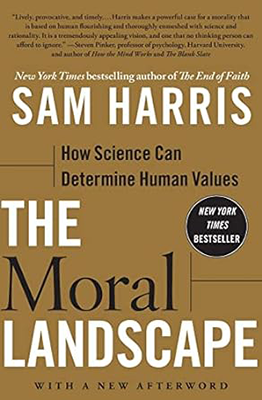Moral Landscape
“The Moral Landscape: How Science Can Determine Human Values” is a book by neuroscientist and philosopher Sam Harris, published in 2010. In this work, Harris argues that science can provide objective answers to questions of morality and ethics.
Harris begins by critiquing the notion that science and morality occupy separate realms, with science confined to describing the natural world and morality relegated to the realm of subjective opinion. He argues that values are ultimately rooted in facts about human and animal well-being, and therefore can be investigated scientifically.
The central thesis of “The Moral Landscape” is that moral truths can be understood in terms of the well-being of conscious creatures. Harris proposes that we can objectively determine which actions and social systems lead to greater well-being and which ones lead to suffering, using empirical evidence from fields such as neuroscience, psychology, and sociology.
Throughout the book, Harris addresses common objections to the idea of a science of morality, such as the is-ought problem and the notion that moral values are culturally relative. He argues that while there may be cultural variations in moral beliefs, there are also universal principles that promote human flourishing and reduce suffering.
Harris also explores the implications of a science of morality for various ethical dilemmas, including issues such as abortion, euthanasia, and the treatment of non-human animals. He contends that by applying scientific principles to moral questions, we can make more informed and rational decisions about how to live ethically.
Overall, “The Moral Landscape” is a provocative and controversial book that challenges conventional wisdom about the nature of morality and the role of science in shaping our values. It encourages readers to reconsider the possibility of objective moral truths and to embrace a more evidence-based approach to ethical decision-making.

